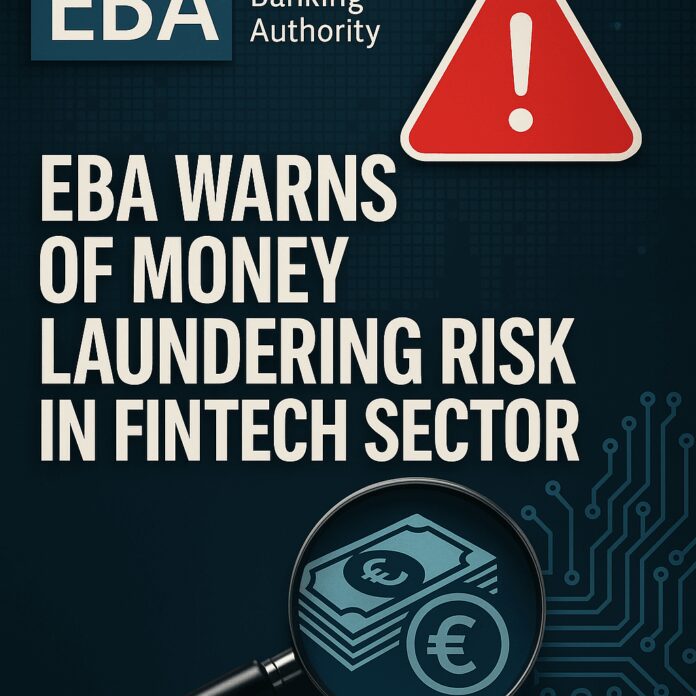The European Banking Authority (EBA) has issued a sharp warning: money laundering risks in the fintech sector are rising fast, and regulators aren’t keeping up.
In its latest Opinion on ML/TF Risk, the EBA highlights the growing complexity of digital finance ecosystems — from embedded finance and crypto to instant payments — and urges stronger, tech-specific AML safeguards across Europe.
What the EBA Is Saying
The EBA’s message is unambiguous: fintech innovation is outpacing supervision.
Key points include:
- Fintech firms often lack adequate AML controls, especially in onboarding and transaction monitoring
- Use of third-party agents and embedded finance models introduces “blind spots” in oversight
- Crypto asset service providers continue to pose high ML/TF risks due to anonymity and limited traceability
- Regulators must apply a consistent risk-based approach and require better customer due diligence (CDD)practices
The EBA urges national authorities to close supervision gaps and bring fintechs — even smaller or non-bank ones — under more robust AML scrutiny.
Why This Matters Now
- Fintechs are entering systemic territory
With some neobanks and payment platforms now handling millions of users and billions in flows, poor AML standards can quickly become systemic threats. - AML fines are rising
European fintechs have already seen a wave of enforcement actions in 2024 — particularly those with crypto exposure or fast-growing cross-border operations. - EU AML Regulation is coming
The EBA’s warning comes ahead of the incoming EU-wide AML Authority (AMLA), set to be operational by 2026. The message is clear: get compliant now — or face harsher oversight soon.
What the EBA Recommends
- Stronger onboarding controls, including biometric verification and enhanced checks on high-risk customers
- Real-time monitoring of transaction patterns, especially for embedded finance flows and cross-border activity
- Full transparency in agent relationships (e.g. BNPL, white-label card providers, wallet-as-a-service platforms)
- Crypto firms should be integrated into mainstream AML frameworks, not left on the regulatory fringe
Industry Reaction
Some fintechs argue the burden is disproportionate — especially for early-stage firms — but the EBA maintains that innovation without guardrails poses real harm.
Compliance leaders across the sector are now revisiting KYC flows, transaction monitoring tools, and vendor oversight structures in anticipation of deeper AML inspections.
Final Take
Fintech is no longer the regulatory underdog — it’s a critical part of Europe’s financial infrastructure. With that comes responsibility.
The EBA’s warning is more than a bureaucratic nudge. It’s a call to raise the bar before the bar is legally enforced.
Innovation without compliance isn’t agility — it’s risk exposure. The time for fintechs to harden their AML game is now.




